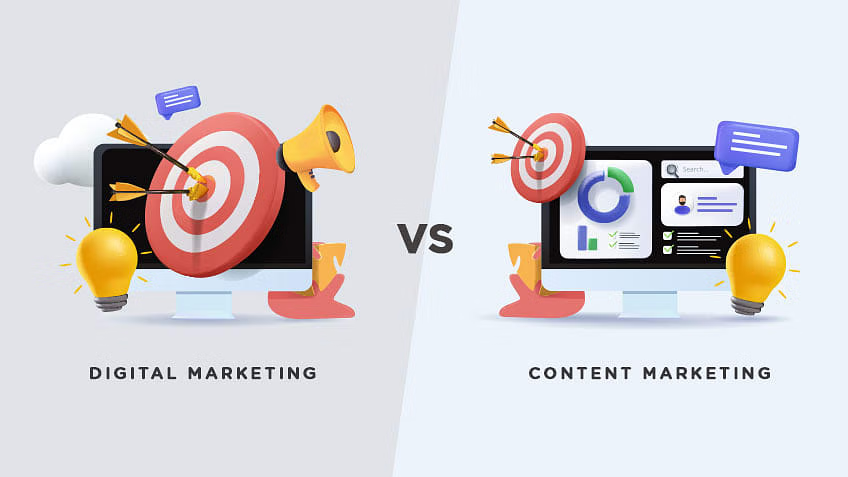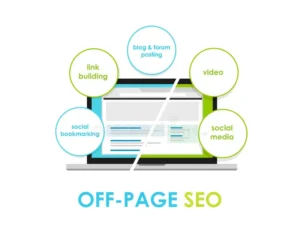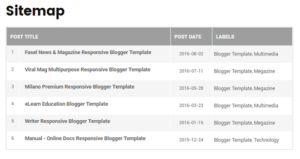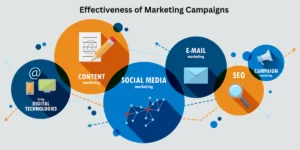Introduction
In the world of online business, marketing strategies have evolved tremendously. Two of the most powerful techniques businesses use today are content marketing and digital marketing. While the two concepts are closely related, they serve different purposes and require distinct approaches.
This comprehensive guide will explore the definitions, differences, intersections, and best practices of content marketing and digital marketing. It will also explain how to effectively combine both strategies for maximum impact.
What is Content Marketing?
Content marketing is a strategic marketing approach focused on creating, publishing, and distributing valuable, relevant, and consistent content to attract and engage a clearly defined audience. Unlike traditional marketing, content marketing aims to provide valuable information that builds trust and authority.
Key Elements of Content Marketing:
- Blogs: Long-form articles and posts that provide valuable insights.
- Videos: Informative or entertaining videos that engage viewers.
- Infographics: Visual representations of information to simplify complex concepts.
- E-books and Whitepapers: Comprehensive guides providing in-depth knowledge.
- Podcasts: Audio content that appeals to auditory learners.
- Social Media Posts: Short and engaging content tailored for various platforms.
What is Digital Marketing?
Digital marketing encompasses all marketing efforts that utilize the internet or electronic devices. It includes a wide range of marketing tactics and technologies used to reach consumers online.
Key Components of Digital Marketing:
- Search Engine Optimization (SEO): Improving website visibility on search engines.
- Pay-Per-Click (PPC): Paid advertising campaigns.
- Social Media Marketing: Promoting content and engaging audiences on social platforms.
- Email Marketing: Targeted messaging through email campaigns.
- Affiliate Marketing: Partnering with other businesses to promote your products.
- Online Public Relations: Managing online reputation and fostering positive media coverage.
Differences Between Content Marketing and Digital Marketing
| Aspect | Content Marketing | Digital Marketing |
| Focus | Building authority and trust | Driving traffic and conversions |
| Approach | Informational and educational | Promotional and strategic |
| Platforms | Blogs, videos, social media | SEO, PPC, social media, emails |
| Objective | Long-term audience engagement | Immediate visibility and ROI |
| Measurement | Engagement metrics | Conversion rates and analytics |
How Content Marketing and Digital Marketing Work Together
Content marketing serves as the backbone of digital marketing. High-quality cont-ent is essential for several digital marketing tactics, including:
- SEO: Well-structured, informative content helps improve search rankings.
- PPC: Quality content enhances the relevance and effectiveness of paid ads.
- Social Media Marketing: Consistent content publishing boosts engagement.
- Email Marketing: Valuable content helps nurture leads and build loyalty.
Best Practices for Combining Content Marketing and Digital Marketing
- Develop a Content Strategy: Outline clear goals, target audience, and content types.
- Optimize Content for SEO: Implement keywords, meta descriptions, and backlinks.
- Leverage Social Media: Share content across various platforms to drive traffic.
- Measure Performance: Use analytics tools to monitor traffic, engagement, and conversions.
- Stay Consistent: Regularly publish high-quality content to maintain audience interest.
Frequently Asked Questions (FAQs)
Q1: How do content marketing and digital marketing differ?
A: Content marketing focuses on creating valuable con-tent to build audience trust, while digi-tal marketing involves a broader range of techniques aimed at promoting products and services online.
Q2: Can content marketing exist without digital marketing?
A: Technically yes, but combining both produces better results. Con-tent marketing thrives when integrated with SEO, social media, and other digital marketing strategies.
Q3: What is the role of SEO in content marketing?
A: SEO ensures that content is discoverable by search engines, making it easier for the target audience to find valuable information.
Q4: How do you measure the success of content marketing?
A: Metrics such as website traffic, engagement, social shares, and conversion rates can help evaluate success.
Q5: What are the most effective platforms for content marketing?
A: Blogs, YouTube, social media channels, podcasts, and email newsletters are some of the most effective platforms.
Conclusion
Understanding the relationship between content marketing and digital marketing is crucial for developing a successful online strategy. By integrating content marketing within your digi-tal marketing plan, you can achieve better visibility, engagement, and conversions. Always remember, consistency and quality are key.







